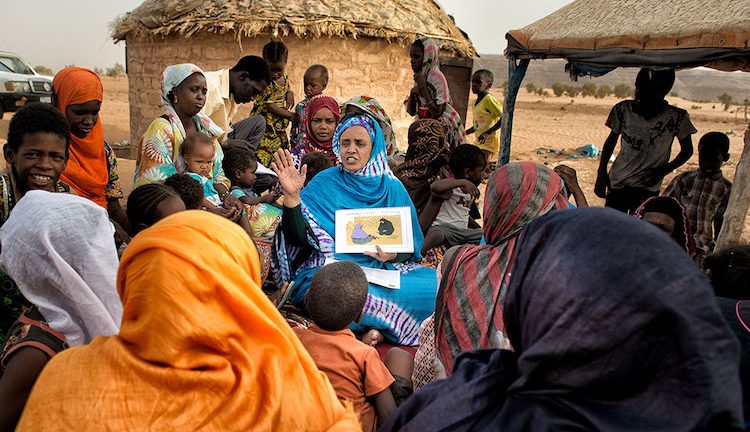By Lisa Vives, Global Information Network
NEW YORK | 1 April 2024 (IDN) — ‘Over my dead body!’
That was how one Gambian woman expressed her frustration with a vote by the country’s majority male legislators to end the prohibition of female genital mutilation (FGM). The practice has been on the rise in recent years despite activist campaigns to outlaw it.
Lawmaker Almameh Gibba presented the repeal bill earlier in March, arguing the ban violates citizens’ rights to practice their culture and religion. Gambia is an overwhelmingly Muslim country.
If the bill is passed, Gambia would become the first country to reverse a ban on FGM.
The vote comes just a month after the International Day of Zero Tolerance for FGM, observed annually on Feb. 6. This year it was observed with the theme “Her Voice, Her Future.”
Gambian lawmakers have already voted to advance the measure that removes legal protections in effect since 2015 for millions of girls.
Ndeye Rose Sarr, head of the local United Nations Fund for Population Activities, shared some of the historical background: “From the age of 10, girls begin to be looked at as a potential bride for an older man. And if she has not yet undergone FGM, there will be those in her community who will want to make sure that she does.”
The rate of FGM in The Gambia is around 76 per cent for women in the 14 to 49-year age range and about 51 per cent for girls up to the age of 14. “That means that, on average, every other young girl you see in The Gambia has undergone this mutilation,” Sarr said.
FGM is almost universal, including in the US
Globally, over 200 million women and girls are estimated to have undergone some form of genital mutilation and girls aged 14 and younger account for about 44 million of those who have been “cut.”
The practice is almost universal in Somalia, Guinea and Djibouti, with levels of 90 per cent or higher, while it affects no more than 1 per cent of girls and women in Cameroon and Uganda.
Contrary to popular perception, female genital mutilation is also practiced in the US. According to the US Centers for Disease Control and Prevention, more than half a million women and girls have either undergone, or are at risk of undergoing the procedure in the future. Most, but not all, are immigrants to the US.
The ban was put in place during the tenure of former Gambian President Yahya Jammeh, whose government opposed the practice.
Isatou Keita, writing for the online publication Semafor, had this to say about FGM. “From my perspective as a Gambian woman, banning FGM is highly commendable… As a staunch advocate for human rights and gender equality, I firmly believe that every individual has the right to live free from violence, coercion, and discrimination, including harmful cultural practices like FGM.”
“The ban against FGM signifies a step towards empowerment and autonomy, granting us agency over our bodies.”
World leaders overwhelmingly back the elimination of female genital mutilation by 2030 as one of the UN’s Sustainable Development Goals. The UN considers it achievable if nations act now to translate that commitment into action. [IDN-InDepthNews]
Photo: Women in Baghdad village attend FGM/C awareness rising session with UNICEF’s implementing partner CORDAK. Mauritania launched a national strategy and action plan to abandon the practice in 2008. Credit: UNICEF/Agron Dragaj
IDN is the flagship agency of the Non-profit International Press Syndicate


